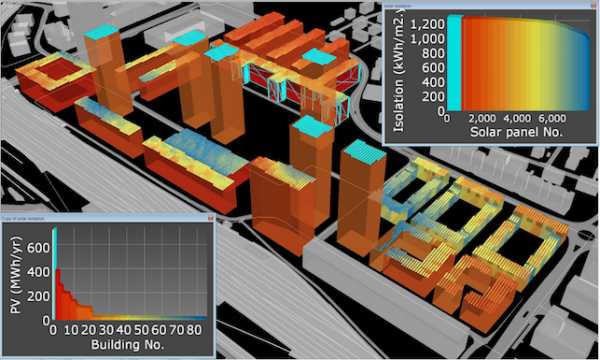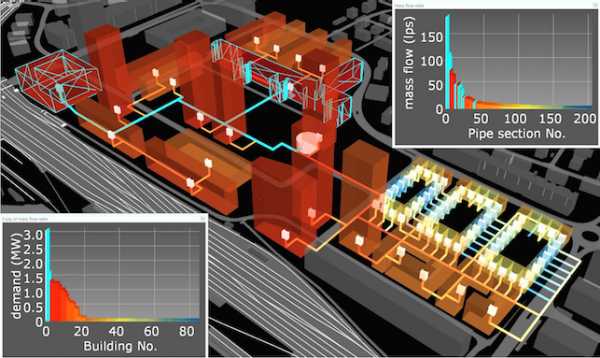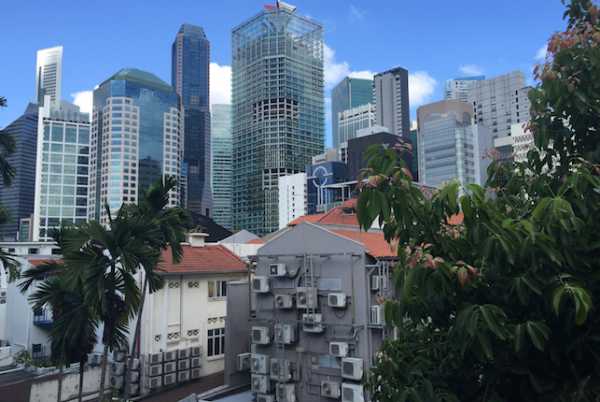Multi-scale Energy Systems (MuSES) for Low Carbon Cities
Leveraging synergies between urban development, urban design and energy systems for the efficient and sustainable supply of energy in cities
The operation of buildings significantly contributes to global energy consumption and green house gas emissions. Energy efficiency in buildings is a key action for climate change mitigation, especially if adopted at the urban scale, where financial instruments might facilitate a widespread integration of low-carbon technology.
Current strategies to improve building energy efficiency and to utilise renewable energy sources (RES) are limited to the building scale. Therefore, they are isolated from developments, strategies and potentials that can be found in the wider urban context.
Previous research at the Architecture and Building Systems Group at ETH Zurich has identified systemic synergies between energy systems, urban development and urban design practices that can support the mitigation of effects and adaptation to climate change in cities, while increasing occupant well-being. Conversely, a high uncertainty due to the longevity of planning processes and the constant change of cities is apparent.
Planning for human comfort, access to low-carbon technology, exploitation of systemic synergies, and control of uncertainty requires a multi-scale and holistic approach to energy systems design and integration. In awareness of this, Multi-Scale Energy Systems for Low Carbon Cities (MuSES) explores the interactions between urban and energy systems design from the building to the district scale. This is especially relevant in the Southeast Asian context, where urbanisation is rapid and highly dense, and mixed-use urban typologies are common.
To address this, MuSES expands the Low-Exergy approach under research in the first phase of Future Cities Laboratory in three directions:
- System: expanding the systems approach for highly efficient building RES and HVAC technologies
- Scale: extending the scope of energy and climate systems from building to district scale
- Synergy: exploring interactions and synergies of multi-scale energy systems with urban development and design
A Singapore-based case study will be used to explore these three aspects, utilising novel spatial toolsets for energy modelling and analysis such as the City Energy Analyst Toolbox (CEA Toolbox). This research will uncover critical interdependencies, synergies and thresholds that influence the design of dense Asian cities and energy infrastructure as part of a joint and highly integrated process.
Multiscale Energy Systems for Low Carbon Cities
 Community energy network optimisation
Image: Jimeno Fonseca, Nguyen, Thuy-An, Schlueter, Arno, and Marechal, Francois, 2016
Community energy network optimisation
Image: Jimeno Fonseca, Nguyen, Thuy-An, Schlueter, Arno, and Marechal, Francois, 2016 Split type air-conditioning units, Rochor, Singapore
Image: Arno Schlueter, 2016
Split type air-conditioning units, Rochor, Singapore
Image: Arno Schlueter, 2016